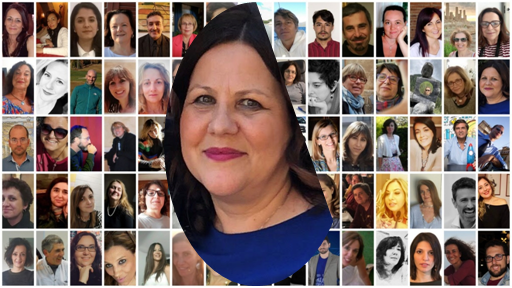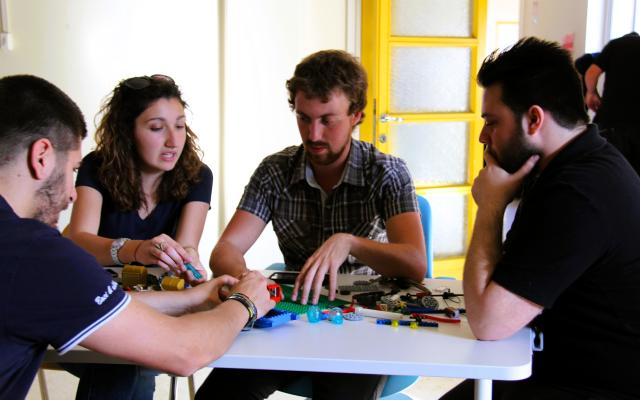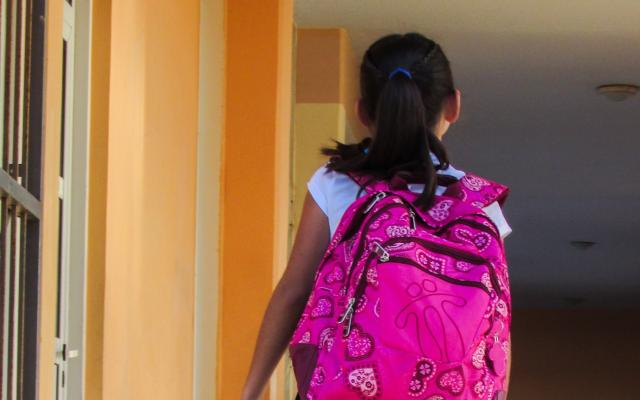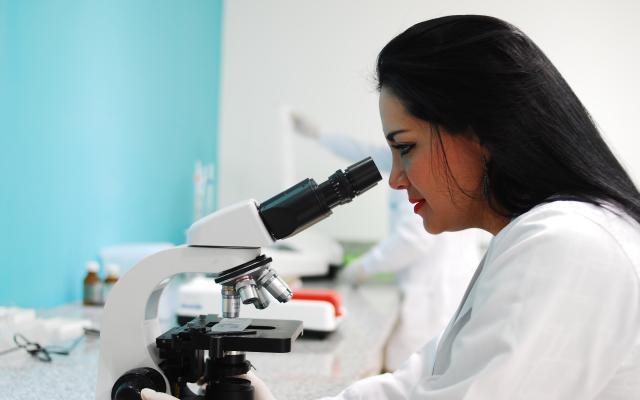For this week’s appointment with “Our School” Professors, we travel to Sicily to meet Carmela Dell’Aria, Professor of English and Italian as a second language at the Antonino Pecoraro first-degree secondary school in Palermo. Specialised in teaching to students with special needs, Carmela is also an independent researcher in the field of digital didactics. She taught Computer Assisted Language Learning at the Faculty of Letters and Philosophy of the University of Palermo from 2007 to 2009. Her doctoral project, funded by the Italian LLP Agency, received awards at the European Language Label 2013 in Ireland and at the 5th edition of the e-Talenti e-Learning Call. Moreover, with Indire, she has also developed Project Robot@School that brings together educational robotics, coding and English.
 Together with other “Our School” Professors, Carmela has developed a game and problem-based learning course on human rights. The game is based on the development of an escape room with a particular focus on equal opportunities, both as gender equality and as an element of inclusion.
Together with other “Our School” Professors, Carmela has developed a game and problem-based learning course on human rights. The game is based on the development of an escape room with a particular focus on equal opportunities, both as gender equality and as an element of inclusion.
As usual, we share a short self-presentation video and then the interview with researcher Ilaria Gaudiello, who coordinates the works of the open source community of professors and educators.
INTERVIEW
Carmela, what values orient your mission as a professor and educator?
My guiding values are openness, enthusiasm, passion and belief, as well as the willingness to accept challenges and constantly question my positions. This the basis that allows me to remain open to change and self-criticism, looking for constant improvement and transmitting and promoting empathy amongst my students and team of teachers. Leadership, merit and authoritativeness are the result of the recognised experience in a healthy working place. These values are fundamental for human relations. They are ethical and moral norms that keep people together and allows an eduational vision to be developed.
In your career as a professor, how have digital tools promoted innovation and inclusion?
Digital tools have allowed me to bring together two of my great passions: teaching foreign languages and applied research. Since 2007, I have worked on the development of experimental didactic language projects for international cooperation. The essential point of this experimentation concerns the global and didactic communications framework that has been enabled by the web and voice technology. I use the web with immersive and collaborative IT technology to teach language and recreate a cognitive environment that allows learners to enjoy the atmosphere they are used to outside of school, overcoming the gap that persists between formal and informal learning. However, concentrating our attention and reflection on the operative side of technology as “tools” would be limited. In fact, I have focused my attention on how these tools contribute to creating a learning environment in which the cognitive and social aspects of human-machine interaction form a single operative context. From this point of view, the multimedia nature of the web operates on various parts of the brain, slowly modifying cognitive perception and strategy. It is as if this constant stimulus were provided by a “natural multimedia environment” driven by the closely interknit nature of media, human sensorial operation and cognitive patterns. My objective has always been to experiment the effects of this in L2/LS didactic activities: in terms of the dialogic and prosodic/intonational aspects, through training of listening and sound production and intonational patterns with the support of speech analysis tools and multimedia web tools. In fact, a problem that affects most individuals who learn and/or teach a language is the efficacy of communication in L2/LS that allows a foreigner to expose content, but also to transfer meanings and nuances through their voice. This is particularly important to anyone with advanced LS skills, but who continue to be perceived as foreigners due to a deficit in this area, as revealed by SLA studies. Thanks to technology, I have been able to experiment how the peculiarities of speech analysis and the multimedia nature of the web can significantly influence LS learning processes. In fact, whilst engaging with multimedia content, the bilateral activity of the brain gives rise to multisensorial experiences that are experienced as if they were real, not virtual. These experiments are based on the joint use of synchronous and asynchronous didactic activities, multimedia educational tools and active learning (student-machine and teacher-student interaction), and new channels and forms of contact that allow the class to enjoy inclusive virtual experiences thanks to the any-time and any-place availability of authentic individuals and materials (the immersive environment). The characteristic of this new form of didactics is that the “implicit” plays a fundamental role in the acquisition of information. Indeed, experience and the application of mirror neuron theory recognises both the absorption of the way of speaking and the content from the immersion in media. Thus, in didactics, this leads us to privilege listening as a way of learning how to identify melodic aspects of speaking. This can be implemented by extending the listening time and varying the input, both in terms of linguistic and operative stimulus quality, as a direct experience or one that imitates reality. This is a new method to facilitate language learning that focuses on the linguistic-communicational dimension, the social-relational one through cooperative learning and peer tutoring, the emotional dimension, and the metacognitive one through the cultural and inter-cultural dimension.
Why did you decide to join “Our School”?
To develop new digital didactic courses based on innovative methodologies and to collaborate with other professors who, like me, believe that talent and creativity are values that must be encouraged and developed.
Can you tell us something more about the course you are developing with your group?
The course is based on teaching and learning the basic concepts of civic education: the constitution, sustainable development and digital citizenship. We decided to develop a game and problem-based learning project on human rights through the development of an escape room and with a particular focus on gender equality as an element of inclusion.
The course allows learners to develop complex 21st century skills and meta-skills such as reading and writing complex content (in both digital and mixed environments) that requires logical and computational, technological and operative, argumentative, semantic, interpretative and social skills to address the cultural convergence in which media intertwine and overlap in the name of freedom, equality and cross-media. The objective is to allow students to become conscientious users of digital environments and tools, to plan and design, to resolve problems and make ideas come true, to acquire independent judgement and an awareness of their capabilities, to be flexible in seeking solutions and to activate processes of cooperation and inclusion amongst peers.
In this context, the produced content is digital material that is custom-tailored for a complex, multisensory communication through technology that allows: (1) to train sensory and communicative skills (development of social and visual intelligence) with direct evaluation available to the student and the sharing of experiences with teachers; (2) the visualisation of knowledge representational processes in which information is not just collected, but “scripted” through intelligence, visual memory, sensory and communicative abilities, the procedural knowledge implicit in know-how and mirror neuron learning processes.
Thus, unlike in traditional didactic activities, interactivity, dynamicity and modularity become fundamental for the reticular elaboration and organisation of disciplinary and/or multidisciplinary knowledge.



